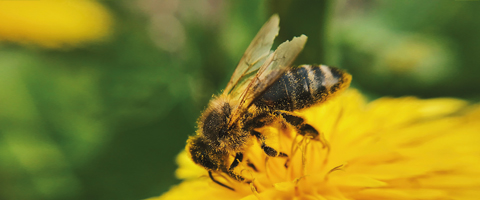Master of Science in Biology

An integral and transversal curriculum with six fields of specialization
The Master of Science in Biology offers a programme that lets students select their area of specialization and acquire a diverse range of transferable skills. This MSc begins with a core of courses covering key topics in biology, with particular emphasis on methodological and quantitative aspects. The Master’s programme extends into courses in six specialized areas, representing the research topics for which the Institute of Biology at UniNE is particularly renowned. Students choose two of the six specializations, of which one corresponds to the topic of their Master’s thesis.
Structure of the programme
The first part of the Master programme consists of a common core that focuses on fundamental concepts and methods in biology. Particular emphasis is placed on laboratory methods (molecular and chemical), quantitative tools (statistics, modelling and bioinformatics), scientific writing, and ethical aspects. Students also have the opportunity to participate in field excursions (alpine, marine, Mediterranean and tropical ecosystems) or to do internships to get workplace experience.
The second part of the Master programme involves coursework, research mini-projects and internships in two of the six areas of specialization. Students develop research plans in one of these areas, which form the basis of their Master thesis during the second year of the programme.
The Master’s thesis research project (60 ECTS) lets students develop their abilities in critical thinking, theirorganizational skills, and their intellectual and scientific independence.
-
Fields of specialization
Fields of specialization
Students choose two of the six specializations, of which one corresponds to the topic of their Master’s thesis.
Chemical ecology
Chemical signalling is the most ancient form of communication among living organisms. This multidisciplinary area explores how organisms, from bacteria to primates, use chemical substances to interact with each other and with their environment. This field is at the interface between ecology, behaviour, animal and plant physiology, analytical chemistry and molecular genetics. Applied areas include agriculture, parasitology, and the fragrance and flavour industry.
Ecology and evolution
This orientation discusses in depth several topics of basic and applied evolutionary ecology. It focuses on interactions among species (in particular parasites and hosts) that are relevant for agriculture and health, and explicitly discusses the relevance of genetics and evolution for conservation and medicine. Through a combination of lectures, personal work, discussions and practical exercises, students will develop the critical thinking necessary to link their biological knowledge twitho important societal questions.
Biodiversity conservation: an interdisciplinary perspective
The implementation of biodiversity conservation always develops within a complex societal context. In the field, conservation in practice has to deal with legal, economic and social aspects, which is beyond the expertise generally expected of biologists. This module aims at providing students the necessary tools to grasp this complexity. It articulates different approaches, looking at conservation through the lenses of law, economics and social anthropology. Through the analysis of concrete cases and the mobilization of theoretical tools, students acquire the basic knowledge they need to engage with specialists in these disciplines, in order to better apply the multiple aspects of conservation in practice.
Animal behaviour
This specialization studies the ultimate causes and the proximal (physiological and cognitive) mechanisms in the evolution of animal behaviour. We consider the emergence and evolution of a wide range of animal behaviours such as cooperation, the establishment of social hierarchies, the resolution of social conflicts, sexual behaviour, and parental behaviour. Our focus is on vertebrates (primates in particular), tropical fish and birds.
Conservation biology
This orientation addresses the discipline of conservation biology by integrating all levels of complexity of life, from population genetics to the biosphere. Through a combination of lectures, practical projects and excursions, students will address the mechanisms driving the current global erosion of biodiversity, with the aim to develop conservation tools for curbing biodiversity losses, restoring viable wild populations, reestablishing functional communities and key ecosystem services.
Sustainable agriculture
Achieving global food security with minimal impact on the environment is a major challenge. This specialization presents approaches to agriculture that aim to create sustainability in agricultural ecosystems. We discuss how studying the interactions between plants and herbivores or pathogens can help to develop ecologically friendly strategies to protecting crops from such threats.
Professional perspectives
The Master of Science in Biology prepares students for a career in research, teaching, public administration (environmental protection, public health, agricultural and forestry sectors), media, industry and other sectors (environmental consulting, urban planning), or non-governmental organizations focusing on the environment and sustainable development.
 English
EnglishConditions for admission
This Master's programme is open to studients with a Bachelor's degree in Biology from an accredited university or any other degree deemed equivalent.
Contact
Informations :
Faculty of Science
Tel. +41 32 718 21 00
conseil.sciences@unine.ch
Registration :
Bureau des immatriculations
Tel. : +41 32 718 10 00
immatriculation@unine.ch


